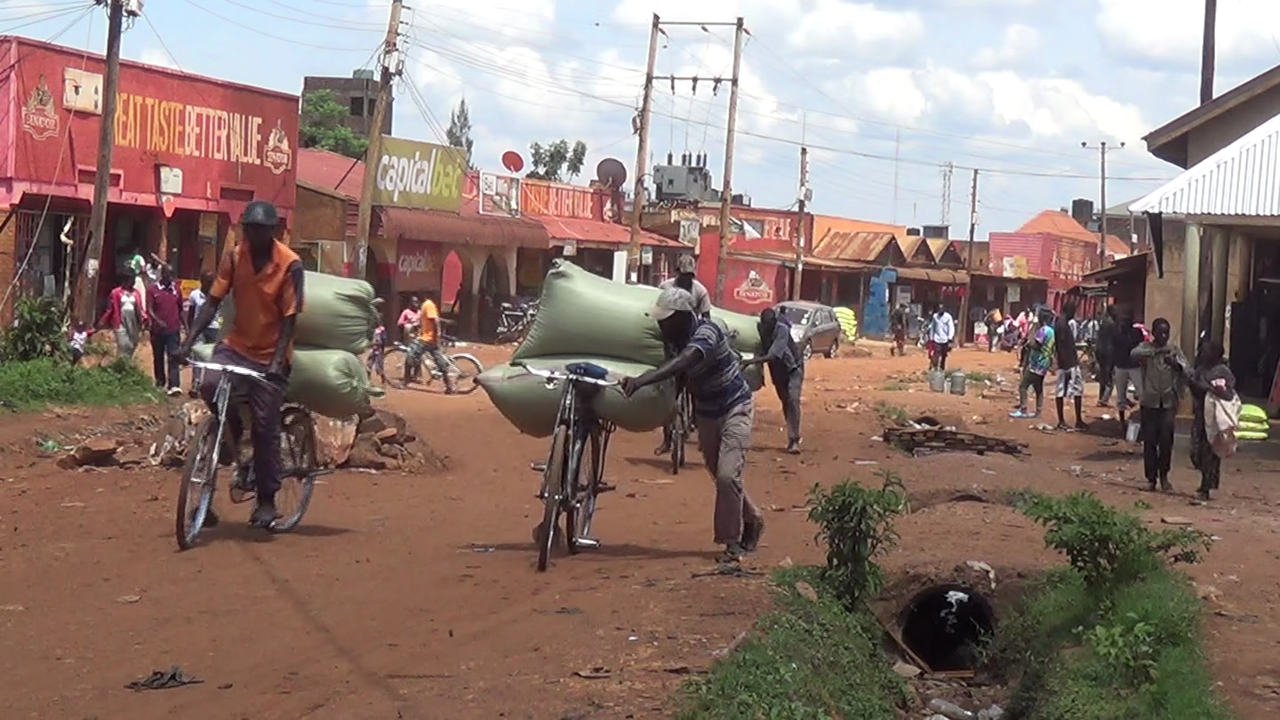Traders smuggle tonnes of Uganda maize into Kenya

Men use bicycles to smuggle maize through Sofia porous border point into Kenya last week. PHOTO | DAVID AWORI
What you need to know:
- Issue. “We are overstretched by the nature of our porous border and lack of the necessary manpower to make a wall along our border with Uganda. However, we continue to do all we can to ensure maize is not smuggled here,” John Nyoike, Busia-Kenya County Police Commander.
Following Kenya’s lifting of the ban on importation of maize from Uganda, the cereal, listed as the most traded in the region, according to the East African Community (EAC) trade protocols, has turned into an illicit commodity.
Many people in Busia have resorted to smuggling maize to Kenya through various porous border points at Sofia, Marachi, Buteba, Buhehe, Lumino, Majanji, Busime and Masinya.
Mr David Erulu, the chairperson of Kenya National Cross-border Traders’ Association, on Tuesday said the illicit trade was flourishing across the border because of scarcity of maize in Kenya.
“Our silos in Kericho and Kitale have no maize and millers are running out of stock,” he said.
Mr Erulu said unlike Uganda, which has variety of foodstuffs, Kenya’s population largely depends on maize for food, making local brew known as kwete and for animal feeds.
He added that although Kenya is involved in maize production, the stocks are not enough to sustain the local demand.
He also expressed fear that local maize prices will soon become unaffordable for majority Kenyans.
Mr Erulu revealed that close to 50 trucks were held up at the Busia-Kenya Police Station and several others impounded in Adungosi, Alupe and Malaba after they were found carrying maize.
Mr Frank Kasumba, the Busia Market manager, said: “We have been seeing trucks with Kenyan registration numbers mysteriously loading maize before finding their way through the borders into Kenya.”
Mr Kasumba claimed that the alleged failure by Uganda National Bureau of Standards (UNBS) to avail results for samples of the maize they took to Kampala has pushed traders to unconventional means of trade for fear of losing their merchandise.
“UNBS took samples of maize to Kampala for tests for aflatoxin while officials from Ministry of Agriculture registered traders but up to now, no results have been availed. Those who registered are unaware of their fate,” he said.
Last month, Kenya banned the importation of maize from Uganda, citing high content of aflatoxins and that it was unfit for human consumption due to risks of cancer.
Subsequently, Kenya lifted the ban but imposed stringent measures to be adhered to by importers, traders and farmers from either countries.
Among the measures included registration of all importers in Kenya, issuance of certificates to all Ugandan grain traders and their stores certified, and provision of certificates of origin of the cereals.
Traders now claim that because of such measures they have resorted to smuggling maize across the border.
Mr Alex Odhiambo, a Kenyan trader, said he is stuck with close to 2,000 tons of maize and risked losing all the capital he invested. Prior to the ban on importation, 90kgs of maize were selling at KShs2,200 (about Shs77, 000) but this has since risen to KShs3,300 (Shs99, 000).
Ms Pauline Nabwire, a small scale maize trader across the border, said a two-kilogramme tin locally known as gori costs KShs100 (about Shs3,500) up from KShs50 (about Shs1,800).
“The prices have more than doubled. We fear the situation might get worse in the coming days as stocks run out,” Ms Nabwire said.
Mr Godfrey Oundo, the chairperson of Uganda National Cross-border Trade, claimed the smuggling of maize is abated by police officers on the Kenyan side who take bribes from traders.
Mr Oundo said some unscrupulous security officers are extorting KShs200 (about Shs7,000) from each sack of maize smuggled into Kenya, and getting KShs15,000 (about Shs500,000) for a 12-tonne truck.
Mr John Nyoike, the Busia-Kenya County Police Commander, however, dismissed the allegations as baseless, saying they had intercepted several trucks, arrested drivers and charged them in court. “We are over stretched by the nature of our porous border and lack of the necessary manpower to make a wall along our border with Uganda. However, we continue to do all we can to ensure maize is not smuggled here,” he said.
Mr Nyoike added that they will wait for court to pronounce itself on whether the traders were in error to deal in a banned product.




